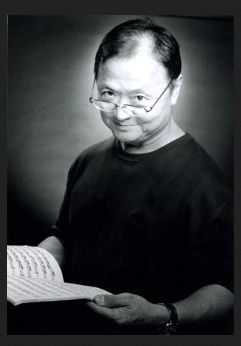

| Paul Chihara was the founder and chairman
of the UCLA Visual Media graduate program, which is devoted to training
composers for film, Broadway musicals, and/or the concert stage. He received
his doctorate (DMA) from Cornell University in 1965, and studied in Paris
with the renowned pedagogue Nadia Boulanger, as well as with Ernst
Pepping in Berlin and Gunther Schuller at
Tanglewood. He has been the recipient of many commissions and awards, including
The Lili Boulanger Memorial Award (1962), the Naumberg Foundation, the
Guggenheim Foundation, the Fulbright Fellowship, the Aaron Copland Fund,
and National Endowment for the Arts, as well as from the Boston Symphony
Orchestra, the London Symphony Orchestra, the Los Angeles Philharmonic,
the New Japan Philharmonic, the Cleveland Orchestra, the Chicago Symphony,
Milwaukee Symphony, the New Juilliard Ensemble, Continuum, and the Orpheus
Chamber Orchestra. He was composer-in-residence at the San Francisco Ballet from 1973-1986, as well as the first composer-in-residence with the Los Angeles Chamber Orchestra, under Sir Neville Marriner. With Tōru Takemitsu, he was composer-in-residence at the Marlboro Festival of 1971. He has orchestrated for Gil Shaham and Orpheus, Live from Lincoln Center. On Broadway, Chihara served as musical consultant and arranger for Duke Ellington's Sophisticated Ladies, and was composer for James Clavell’s Shogun, the Musical. He began his film career scoring Death Race 2000 (1976) for Roger Corman, which starred a very young Sylvester Stallone in his first Hollywood picture. Since then, he has composed scores for more than 100 motion picture films and television shows, including work with directors Sidney Lumet, Louis Malle, Arthur Penn, John Turturro, Michael Richie, and Jacques Cousteau. Among his most well-known scores are Prince of the City, The Morning After, Crossing Delancey, Romance and Cigarettes, Kiki’s Delivery Service (co-composer), and the popular television series China Beach. Mr. Chihara has been awarded the Composer-of-the-Year by the
Classical Recording Foundation in New York, 2008. He is a trustee and
frequent composer/orchestrator for the Orpheus Chamber Orchestra. He often
lectures at NYU, MIT, Cornell, and the Vermont College of Fine Arts. == Names which are links in this box and below
refer to my interviews elsewhere on my website. BD |
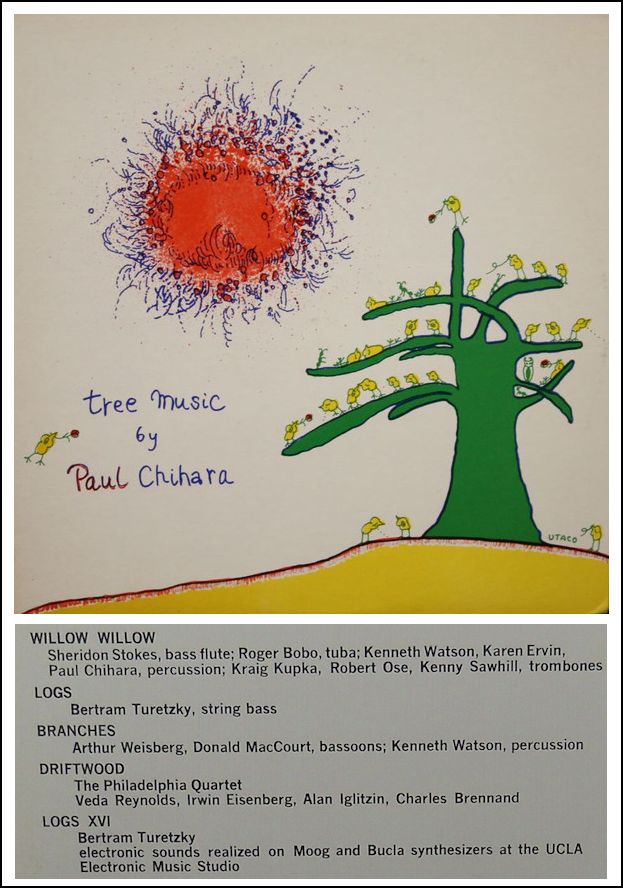
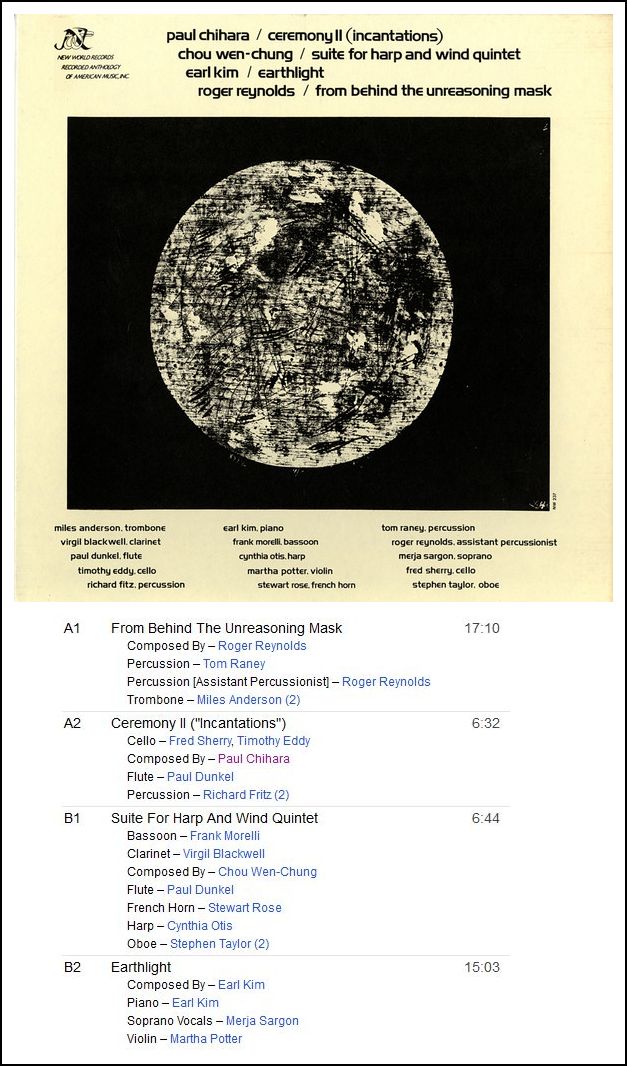
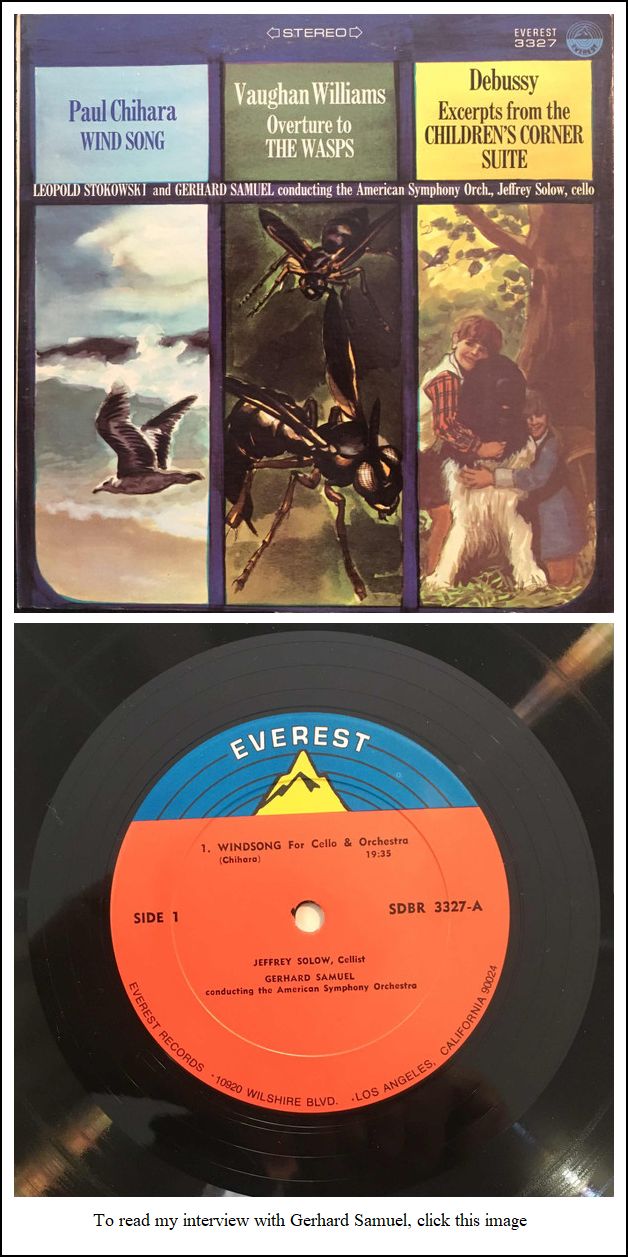
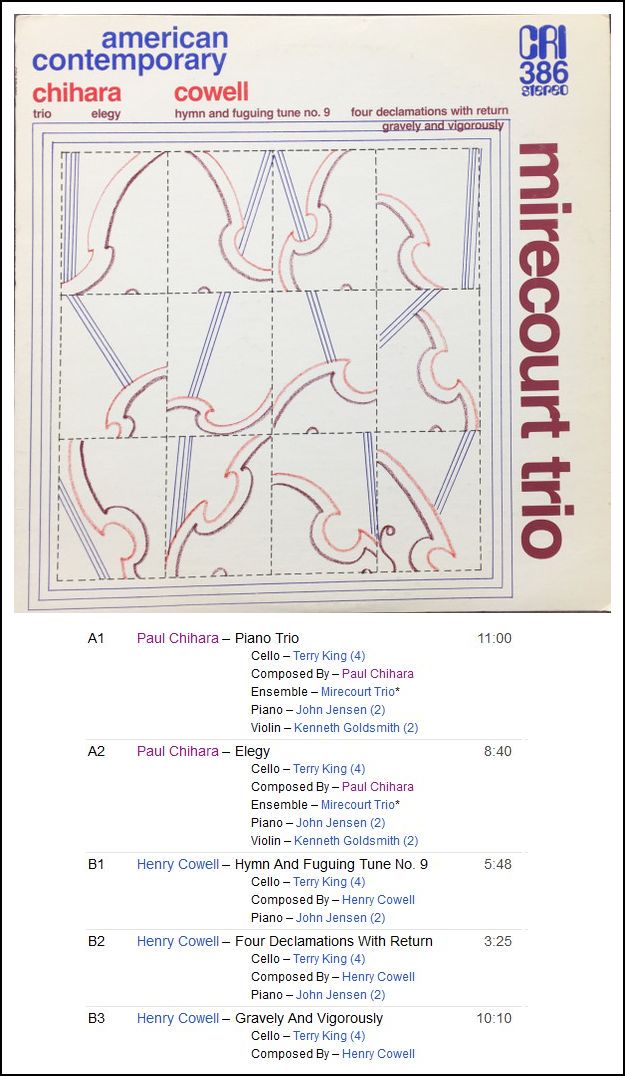
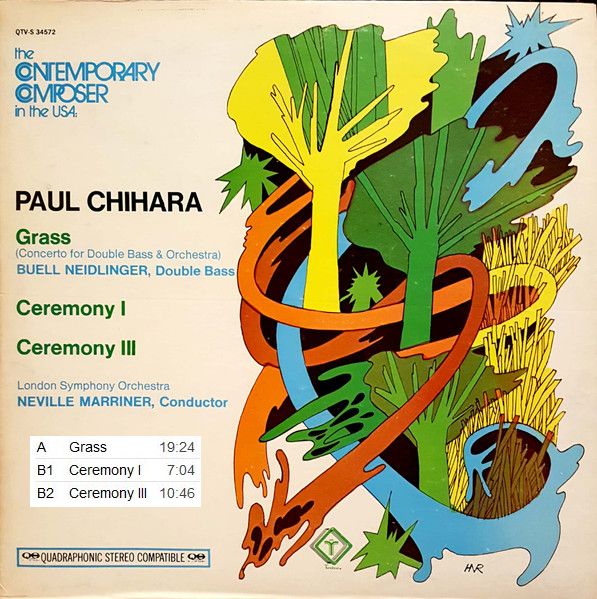
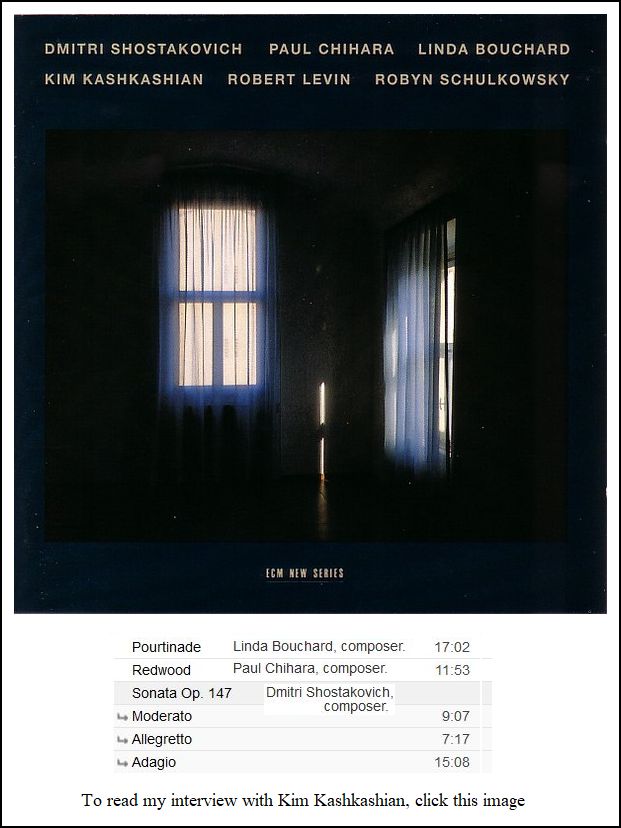
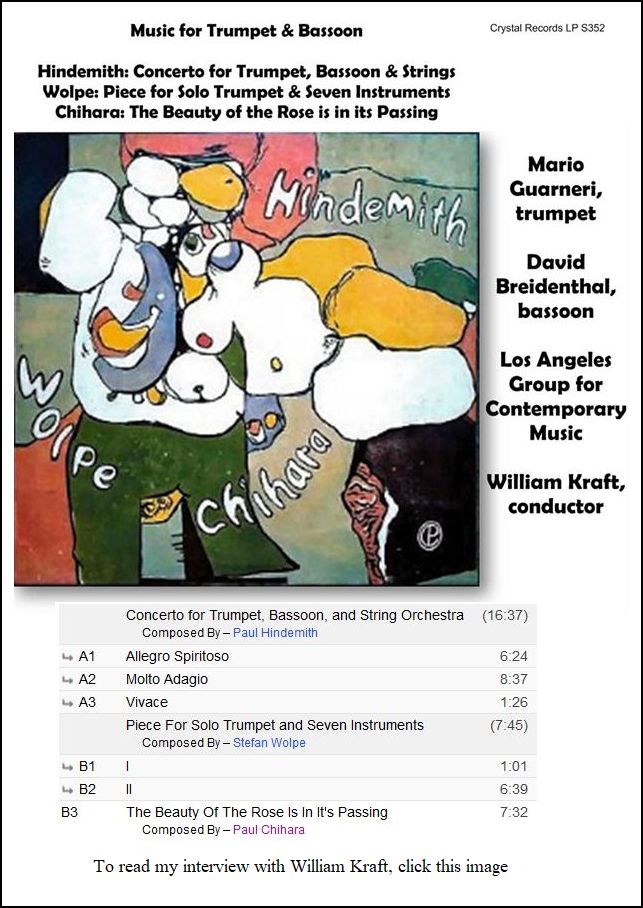
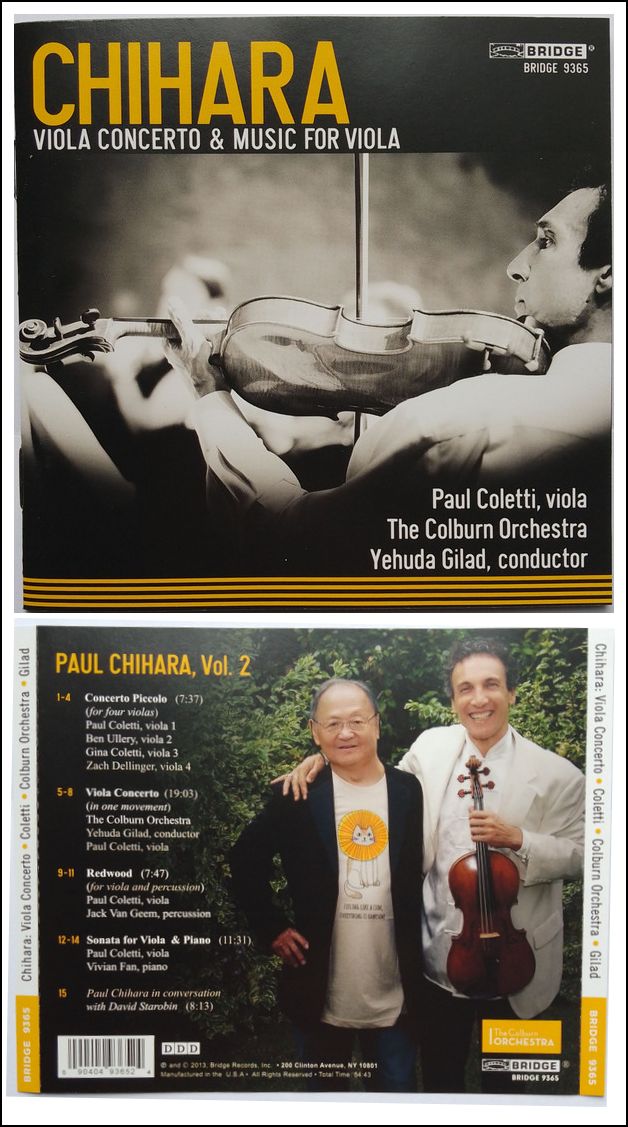
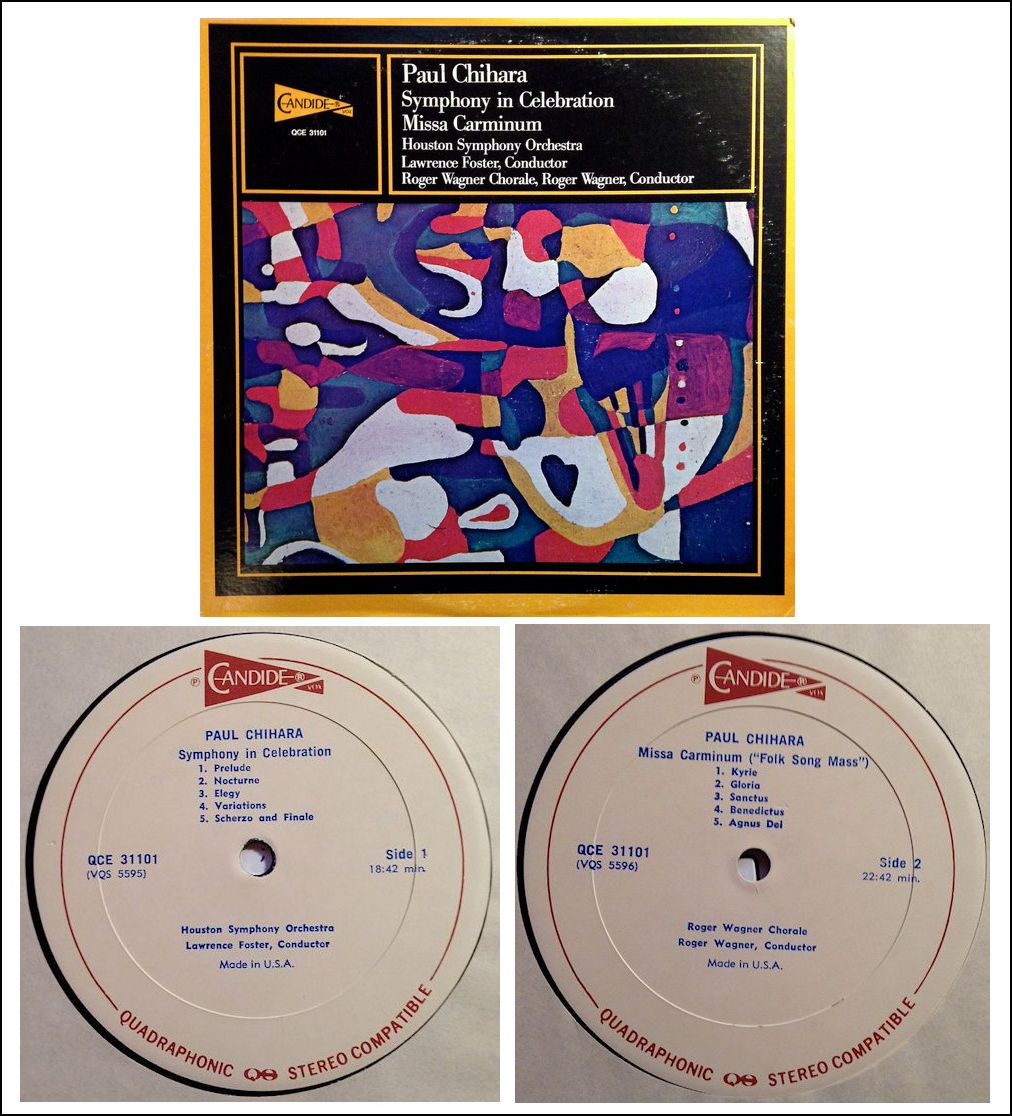
© 2004 Bruce Duffie
This conversation was recorded in Evanston, Illinois, on July 6, 2004. Portions were broadcast on WNUR the following December, and again in 2011. This transcription was made in 2023, and posted on this website at that time. My thanks to British soprano Una Barry for her help in preparing this website presentation.
To see a full list (with links) of interviews which have been transcribed and posted on this website, click here. To read my thoughts on editing these interviews for print, as well as a few other interesting observations, click here.
Award - winning broadcaster Bruce Duffie was with WNIB, Classical 97 in Chicago from 1975 until its final moment as a classical station in February of 2001. His interviews have also appeared in various magazines and journals since 1980, and he now continues his broadcast series on WNUR-FM, as well as on Contemporary Classical Internet Radio.
You are invited to visit his website for more information about his work, including selected transcripts of other interviews, plus a full list of his guests. He would also like to call your attention to the photos and information about his grandfather, who was a pioneer in the automotive field more than a century ago. You may also send him E-Mail with comments, questions and suggestions.